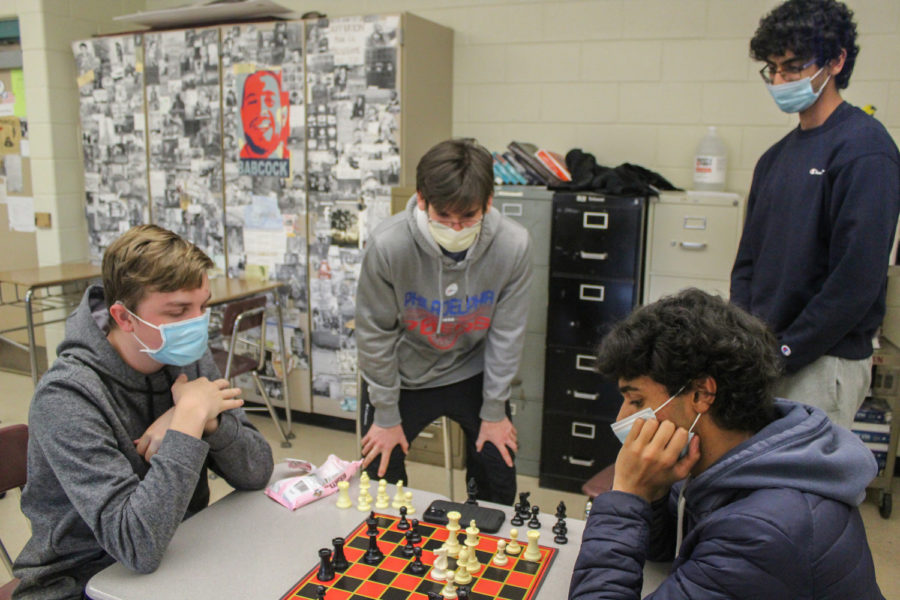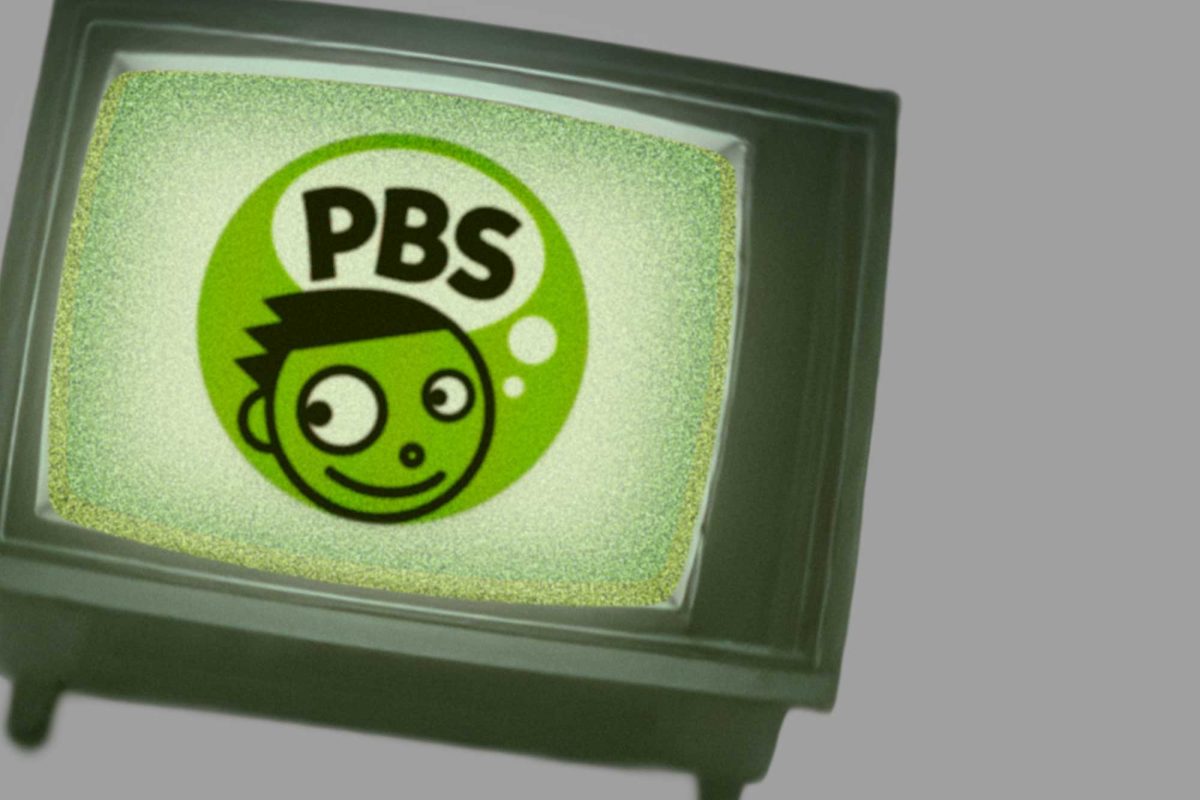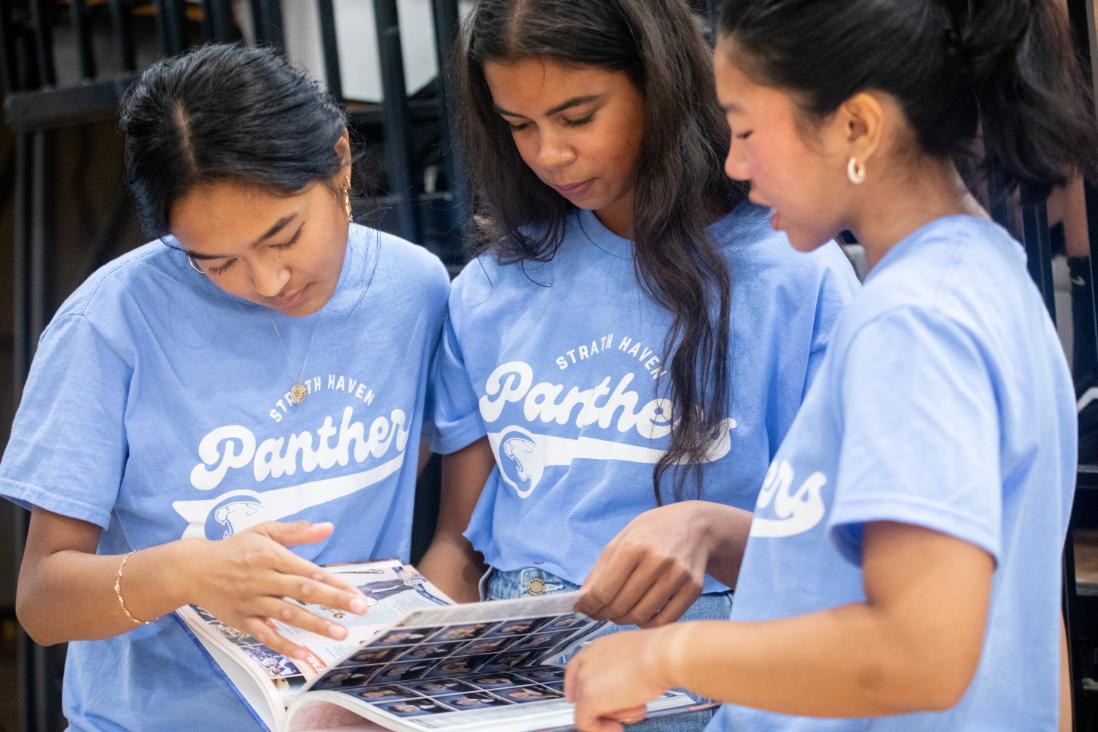When I entered room 304 on Friday, December 14, I expected to observe Haven’s finest chess players in their natural habitat, but I was actually integrated into their community. As Mr. Babcock sat in the corner of the room working intently on his computer, Jonah Shor began to unpack the 2 chess sets and organize the impending tournament.
Considering the time constraint of fifth block to complete the competition, the group decided to play “five-minute games. When it’s your turn, your clock winds down from five minutes, and when you move, you begin your opponent’s clock instead. This means that you lose the game if your opponent puts you into “checkmate,” as well as if your time runs out. With five Chess Club members and a few onlookers in attendance, it was decided that the most highly-rated player, Caleb Young, should have the easiest path to the final, essentially a “bye.”
Round One
In the first round, I was invited to challenge Caleb, and the winner of our match would be sent automatically to the final. Theo Runiewicz would play Matthew Chen beside us and after, Jonah would play Collin Woodland. Even as someone who ~kind of~ knows how to play chess, when my five-minute clock started, I was overwhelmed. I lost my most important piece, the queen, after about five moves and kept forgetting to tap the clock after my turn. Though I put up a decent fight, I had lost most of my pieces when I ran out of time. I probably didn’t have a chance from the beginning—when I first noticed Caleb’s confident and amused grin even under his mask. Though I could not pay attention to the other game during my short-lived Chess Club career, Theo also “blundered” away his queen against Matt, who moved onto the next round. Collin held his hand over his clock the entire game against Jonah, and despite energetically commentating over his defeat, he often failed to notice when the cool-headed Jonah “checked” his King.
The Chess Club is new to in-person school, as the leaders intended to start the club right as the pandemic began.
Shor shares that the idea for “Chess Club really started in school, with playing chess in class, and it progressed to playing chess after school.”
Manthan Dhingra attests that he, Marcus Lin, Jonah Shor, and Akshay Risbud recruited “hundred of members” at the activities fair, including Matt Chen and Collin Woodland.
The players all noted that Akshay, a “very influential” founder of the club, a “legend” who “brings a lot of passion,” seems to be the only known legitimate threat to Caleb on the chess board, although Caleb shares, “I played him once. I beat him.”
Semi-final
The semi-final featured only one matchup, and Caleb awaited the winner. The group circled around Jonah Shor and Matt Chen, and though I gathered that Jonah may be favored, the game seemed to be up in the air. Jonah was off to an early lead, but Matt gradually came back, making up a deficit of a few pieces. The momentum shifted again when Jonah put Matt in a “fork,” and after Matt defended, he was running out of time. As Matt scrambled at the end of the game, he gave away his knight and his clock beeped; Jonah would face Caleb in the final.
It is clear that this club mirrors the chess world with mostly male-identifying players. I asked the group if any girls had ever been a part of the club.
“Yes, one,” they replied. However, they emphasize that Chess Club does not discriminate on the basis of gender, and I would say the group would benefit from some Strath Haven queens.
It is certainly an engaging environment. Some members reference the staple that snacks are at the meeting. During my winter visit, they kindly offered the group candy canes.
Further, it would be impossible to attend Chess Club without having a laugh; the games are characterized by funny mistakes and strategic dynamics.
This culture is characterized by frequent, friendly jabs such as, “Just stop the clock so he can think about it,” which was directed at a flustered competitor.
Championship
Entering the championship as the clear underdog, Jonah was the fan favorite. But from the start of the game, Caleb played a solid game, offering Jonah few chances to attack. Watching the game, I had no clue what my strategy would be in Jonah’s position. Caleb quickly gained a small “material advantage” and the players traded their queens in a multi-move maneuver. A few minutes into the game, Caleb was able to make three consecutive “checks” on Jonah’s king, the last one being a game-ending checkmate. It was an entertaining event, and Caleb was the decisive victor.
For some reason, these students decide to attend Chess Club during fifth block on Mondays and Fridays, rather than heading home to play online or do something else.
For Manthan, the group “is a great outlet to display his chess prowess” and is a good activity to fill the time before track.
Caleb appreciates the in-person connection and the physical chess boards at school rather than playing online, and Shor adds that there’s more weight to your moves when other people are there to watch.
Collin jokingly (but perhaps accurately) suggests something deeper than that.
“I would say it’s a sense of community, but also, I feel like chess is a metaphor for life. With the various challenges and adversities, you never know what you’re going to get.”
















